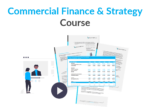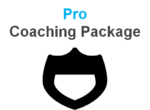
The Fastest Route from Accounting & Audit to FD (Finance Director)
In the Finance world, the Finance Director (FD), Chief Financial Officer (CFO) and Chief Executive Officer (CEO) roles tend to be considered the beacons of success and high points of any person’s career.
When a career starts in Accounting or Auditing, the FD seems to be particularly sought after and that makes perfect sense considering the FD is the first major senior role in front of you along the traditional accounting & reporting career path.
In this article, we’ll cover:
- Should we even be aiming for the role of FD
- Traditional routes to becoming FD
- Off-piste Roles & Experiences that lead to becoming a prime candidate for the FD role
- The fastest routes to becoming FD
But should we all be aiming for the role of FD?
Firstly, for those that haven’t truly explored the work life reality of any FD, CFO or CEO, the role itself can be hugely overrated. As you can imagine, being the face of a business is tiring and demanding. Every major decision requires your dedication and involvement. With the highs and lows of success vs failure almost entirely associated to you, the experience can be hugely taxing on your personal life and future reputation in the business world.
Having run several small businesses with experience in both the CEO and Chief Operating Officer (COO – i.e. the right-hand man of the CEO) roles, I can certainly tell you being COO was just as rewarding, fast-paced and exciting, yet I enjoyed a less stressful existence than the CEO (who was the face of the company).
That leads me nicely onto my next point.
We’re not all suited (or even want) to be “the leading” figure. Anything can be learnt and developed with perseverance, but these particular leading roles require the ability to handle high pressure and manage/entertain a large audience of people, all of which can come more naturally to some versus others.
So where am I going with this?
My point is this: it’s absolutely fine to have a post-accounting & audit career path in mind which does not lead to becoming either an FD, CFO or CEO. Do not consider your plans to be any less ambitious or inadequate vs your peers if you choose otherwise.
We are all naturally suited to certain roles more than others. You can become a specialist/senior in anything you choose to and potentially with that same responsibilities you imagine an FD, CFO or CEO might have, but with a much more balanced lifestyle.
You might also find that choosing a more unique route provides a greater chance of success for you personally: stepping away from the herd if you will.
Lastly, know that Accounting and Auditing alone are not necessarily the most effective way to get to the top. Careers that start in the sector are certainly brilliant foundations for reaching FD, CFO and CEO, but accounting experience alone is not sufficient for senior leadership roles, and can often be slower for you in the long run.
OK – but I’m still keen on exploring a career as an FD. What roles and experiences lead there?
Depending on the sector and/or individual business the FD is within, each role will have different background and skill requirements and therefore it’s difficult to say what the concrete “best” route from audit or traditional accounting to FD is…
Having said that let’s discuss the “traditional” pathways to FD alongside potentially more fulfilling and efficient routes in.
As the name suggests, FD’s all have 1 thing in common which is they can run the finance division of their company in its entirety. The responsibilities of the finance division always include reporting, budgets/forecasts, tax, treasury etc and you’ll likely need to understand these areas and/or have good middle-management staff who can run the parts you’re less familiar with.
The traditional route to FD most people consider involves spending years jumping through several ranks within the reporting team of a medium to large company (e.g. some derivative of Junior Accountant > Senior Accountant –> Reporting Manager -> Financial Controller –> FD). The specifics of this journey will, of course, depend on the size of the company and how the company splits responsibilities between its staff (e.g. there may be many Reporting Mangers for different divisions/product lines of the business).
But Reporting can be dull. What about other routes in?
There are much more interesting sides of the Finance division within a company that are less well known (and thus sought after by your peers). The areas of Commercial Finance sit slightly off-piste from a traditional accounting function, typically have roles that require the commercial and financial acumen that you’ve already spent time building to support the strategy & commercial teams in their decision making.
Not only are the roles in this area potentially more rewarding (and exciting) in the short-term, but these experiences also help you stand out as a more well-rounded candidate for the role of FD and beyond…which can help you get there faster. Consider that the best FD’s will get promoted based on their experience in such commercial and strategic activities.
So what’s the fastest route from accounting & audit to FD?
If you’re dead set on making it to FD you can get there via the traditional route (i.e. reporting) and over the course of just a few years after qualifying by aiming for a small/startup company. You’ll likely have no/less staff below you than if you were in a larger company and also have to get your “hands dirty” in the everyday operational activities required in the Finance division, but also obtain the higher-level responsibilities overseeing the finances (and decision-making support) as the finance guru of the company.
At medium-to-larger companies you could pursue a role in “Commercial Finance” of a product line/service line/customer/business unit (responsibilities are similar to an FD to some degree but without the title). You would be required to work closely with the commercial and strategic teams to support their decision making, considered their “Business Partner” and likely sitting close to them (e.g. if you were responsible for a product line you could be seated with the marketing/sales teams that drive the revenue for that product line, rather than in the reporting & accounting team).
With the Commercial Finance role you would be responsible for all activities surrounding your product/service/customer/business unit from a finance perspective including new ventures, performance improvement and reporting performance evaluation/future plans to senior stakeholders. These are the experiences that set you apart from your peers going the more traditional reporting route when applying for the next available FD spot (even if you spend less time / have less experience in reporting roles). You’ll likely also find your day job more rewarding and exciting in the short-term!
Commercial experiences and closeness to commercial decision making portray your potential to be more than an FD that runs the finance division for only historic reporting purposes. It shows you can understand and drive profitability across the business, and thus relate to senior leadership / C-Suite execs.
However, let’s be clear. To make it to FD and have the ability to run the finance division you will always need to know accounting & reporting inside out.
The dilemma with this is that once you have multiple years of reporting/standard accounting on the CV/Resume (i.e. a history of being comfortable in an administration role) it becomes increasingly difficult to switch over to (the more strategic) Commercial Finance roles.
Recruiters/HR will pigeon-hole you as you’ll be perceived to be stuck in the weeds of the financials and less capable of higher-level commercial / strategic thinking. They’ll likely prioritise other candidates who showed hunger for this commercial / strategic responsibility earlier on in their career.
You will no doubt have had experiences in your reporting role that are somewhat commercial and/or that can be portrayed as such on your CV/Resume, but with FD being a popular post-accounting & audit career path, nailing the application and recruiting process requires getting the relevant experience more efficiently and effectively (i.e. sooner in your career so that you build up the in-depth domain expertise).
I would therefore recommend going straight for the Commercial / Strategic Finance roles straight after qualifying in traditional audit or accounting (Remember: you can always dip into some kind of reporting role work later (if you still want to be an FD), but it’s harder to switch from reporting to Commercial Finance).
Wrapping up…
If you’re really intent on getting to FD then:
- you likely to need to spend some time in both the reporting and commercial functions of the Finance division.
- having solely reporting function experience can get you there (commercial-only is less likely) but is a potentially long and dull route.
- having some commercial function experience can expedite your journey from traditional audit & accounting to FD.
- Bolting on some reporting experience to your Commercial role is easier than doing it the other way around
- Your best bet is to go for Commercial Finance roles straight after qualifying / as soon as possible to make your work-life balance much more enjoyable and is potentially more lucrative in the short-term.
Exit Options | Mapping the post-accounting & audit landscape
A lot of the clients we coach ask about moving into more strategic & commercial roles after spending time in traditional accounting & audit, but don’t know where to start or even what opportunities exist …so-much-so that we’ve put together a map of the landscape of accounting exit opportunities, which I encourage you to check out!
Want to land (and master) more strategic and commercial roles?
Learn how to upskill beyond your technical accounting & audit background in the first (and only) online course built specifically for accountants. Through interactive modules, case studies, and real-world applications, you’ll learn how to confidently build financial models, assess business opportunities, and everything else needed to contribute meaningfully to strategic decision-making. Build hard commercial skills to future-proof your skill set and prove you can translate your accounting background into a commercial context with the Commercial Finance & Strategy – Principles and Execution online course.
Spice up your CV/Resume for the post-accounting & audit world
We’ve created a 50+ page digital guide specifically to help those of you applying for more commercial & strategic roles. Our straight-talking CV/Resume advice for Accountants/Auditors is the only guide that is highly-specific to the traditional accounting & audit background: we give you real-life good & bad examples for showcasing your experience for strategic roles, the best structure & content to win over recruiters, a strategy for distributing your CV/Resume, interview advice, and more!
Want more personalised advice from one of our Co-Founders?
We’ve been where you are and can help you forge your swift exit. Click here to Get Coached.











